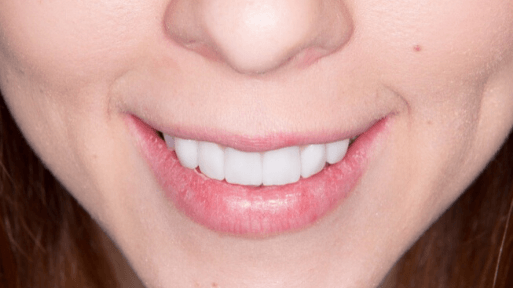How Often Should I Have My Teeth Cleaned?

The American Dental Association recommends that you visit your dentist at least once a year to get your teeth professionally cleaned, though many dental insurance policies actually cover two cleanings per year. While going at least once a year is the recommendation, some people do require more frequent visits. People who should go more often include those who tend to get cavities quickly, people who have already been diagnosed with gum disease, smokers, diabetics, and pregnant women.
Here are some other things to know about dental cleanings.
What it involves:
- Tartar Removal. Even with regular flossing and brushing, tartar and plaque can accumulate on your teeth in hard-to-reach places. Because tartar hardens, it often can only be removed with ultrasonic treatments and fine hand tools during a professional cleaning.
- Fluoride Treatments. Fluoride applications are used to strengthen the enamel of your teeth and may be applied during the cleaning.
Do I Need a Dental Crown?

A dental crown is a tooth-shaped "cap" placed over a tooth to cover it and restore its shape, size, strength, and appearance. Crowns are common dental treatments and they come in a variety of materials and types. Read below to learn what the signs are that you might need one.
Signs You May Need a Dental Crown
A dental crown may be needed in the following situations:
- A broken or decaying tooth: Dental crowns are usually applied to protect a weakened or decaying tooth from further damage.
- Broken cusps. Cusps are the part of your teeth you use to tear and chew food. If a cusp breaks, dental crowns are common treatments.
- Large fillings: Crowns are often used to cover and support a tooth with a large filling or a history of repeated fillings when there isn't a lot of natural tooth left.
- Excessive wear: Sometimes patients have extremely weakened and worn-down teeth due to grinding, acid reflux, or a highly acidic diet. Adding a crown can restore teeth to their normal size and strength. Oftentimes, a patient will also be given a mouthguard to wear to further protect the crown and remaining teeth.
- Undesirable appearance: A lot of patients are simply unhappy with the way their teeth look. Crowns can be used to change the shape or color of a tooth. They can also be used to reduce the appearance of gaps between teeth.
- Root canal: Root canals are common treatments that hollow out the roots of a damaged tooth. However, because this procedure removes a lot of the original tooth, it can weaken what’s left. A crown can be added to restore some strength and function.
5 Soft Foods to Eat After a Dental Implant Surgery

Following dental implant surgery, your dentist will provide detailed information about how to properly recover, including information on what to eat and what not to eat. But as a general guideline, a soft, non-chewing diet is recommended for 10 days to 2 weeks after surgery to allow the gum tissue to heal. Patients who maintain a good, nutritious diet of soft foods generally tend to feel better and heal faster. The following foods are some great ideas to consider eating after dental implant surgery:
Soft Dairy
Dairy is a great option because it has calcium, which is necessary for building strong teeth. Your best options for soft dairy products include yogurt and milkshakes, which require little to no chewing and are filling and delicious.
Soft Fruits
Soft fruits such as bananas and applesauce are great options following a dental implant surgery. You may also be able to enjoy berries and grapes. After the first few days, oranges and apple slices are probably okay, but be mindful of not irritating the mouth from chewing too much.
What is a Good Age for Invisalign?

Invisalign are clear aligners used as orthodontic devices to straighten your smile. The treatment involves wearing a series of clear aligners over a period of months, with each successive set of aligners moving teeth closer to their ideal, straighter position. Whether you are a teenager or a senior citizen, Invisalign can work for you. And while there is no specific age requirement for this treatment option, there are some general guidelines that may help you determine if they’re right for you or your child:
- Length of treatment: The majority of Invisalign patients wear their aligners for about 12 months. Depending on the severity of the problem, you may be required to wear your aligners for as little as eight months or as long as eighteen months or more.
- Teeth positioning: Overall, Invisalign is recommended for kids who have lost all of their baby teeth and have a full set of permanent teeth, which is usually around ages 12 or 13. It’s not recommended for children whose mouths are still growing and developing, or for any child who has significant tooth decay or damage. Typically before Invisalign is started on a younger patient, an X-Ray will be done to assess the position of the teeth and check how much space is needed for remaining teeth to come through.
- Maturity: Patients must be responsible enough to wear the aligners for up to 22 hours a day, every day. Luckily, each Invisalign aligner tray has a small blue indicator on them that will allow you or your dentist to know if they’re being worn frequently enough. Patients will also need to keep their aligners and mouth clean!
Schedule an Appointment Today
If you are interested in finding out more about Invisalign for you or your child, make an appointment with us today!
What Exactly is a Root Canal?

A root canal is a relatively painless and straightforward procedure usually performed over one or two visits. A root canal is a very common procedure that eliminates bacteria from the infected root canal to save the natural tooth. During a root canal procedure, your dentist will:
- Remove bacteria and decay from the tooth pulp, root, and nerve
- Clean out the infected area with antibiotics
- Fill the empty roots
- Seal the area to prevent new decay
How do you know if you might need a root canal?
Your dentist will determine if a root canal is the necessary treatment for you. But there are a few signs and symptoms that mean you might be heading in that direction:
- Severe pain while chewing or biting
- A chipped or cracked tooth with worsening pain
- Lingering sensitivity to hot or cold, even after the sensation has been removed
- Swollen or tender gums, or darkening of the gums
How to Pack a Teeth-Healthy Lunch

Did you know that your oral health is directly related to your overall health? A nutritious meal at lunchtime plays an important role in your (and your family’s) energy and focus throughout the day and could make a big difference on their overall health. Packing a teeth-friendly, healthy lunch doesn’t have to be expensive or time-consuming so long as you plan ahead. Here are a few easy tips to keep you and your family’s teeth and gums healthy at lunchtime:
Crunchy veggies
Crunchy vegetables—like carrots, cucumbers, celery, and broccoli—are probably the best snack for your teeth, period! The high water content of these vegetables helps dilute natural sugars in your mouth and washes away food particles while you eat. The easiest way to make veggies even yummier is to include a dip like hummus or salsa.
Cheese
Cheese is high in calcium and phosphorus, two minerals that help keep tooth enamel strong. Cheese also increases saliva in your mouth, which acts as a natural defense against cavities and gum disease. Other dairy products, like milk or yogurt, are also good things to pack!
5 Easy Oral Care Tips for Your Kids

When it comes to your child, it’s never too early to develop good oral hygiene habits. In fact, the quicker they learn, the healthier their teeth and gums will be in the future! Here are five easy oral care tips for your kids:
- Lead by example. It’s easy to show your son or daughter how to brush, but brushing with you can make the experience more impactful. By showcasing your good habits, they’ll be more likely to build those habits, too.
- Use fluoride toothpaste from the start. According to the American Dental Association, fluoride is one of the most necessary ingredients to help prevent tooth decay at an early age.
What is Fluoride?

Fluoride is a naturally occurring mineral found in all water sources, including the ocean. Some foods also contain fluoride and it’s often added in small amounts to public water supplies around the world to help strengthen teeth and reduce tooth decay. Because research has also shown that fluoride reduces cavities in children and adults, as well as repairs the early stages of tooth decay, it is very common for dentists to use it.
How does it work?
The process by which fluoride helps your teeth can get a little scientific but here’s the gist: when it reaches your teeth, it’s absorbed into your enamel. It then helps repair the enamel by replenishing the lost calcium and phosphorus, which are the materials that keep your teeth hard and strong. This process is called remineralization and it helps to rebuild your enamel and reduce the risk of tooth decay.
Benefits of Fluoride
There are many benefits to using fluoride. It helps to:
- Ward off the growth of harmful mouth bacteria
- Rebuild or remineralize your weakened tooth enamel
- Minimize the loss of important minerals from your teeth
- Stop or reverse the early signs of tooth decay
Schedule an Appointment Today
Make an appointment with us today to learn more about fluoride and other ways we can help you achieve a strong, healthy, gorgeous smile!
What are the Symptoms of TMJ?

TMJ, short for Temporomandibular disorder, refers to a variety of conditions that affect the temporomandibular (TM) joints, jaw muscles and facial nerves. TMJ is the most common non-dental related chronic facial pain complaint and affects more than twice as many women as men.
Symptoms
The most common symptom is pain around the ears. Other symptoms may include:
- Headaches and neck aches
- Tenderness of the jaw
- Jaw pain or soreness that is more noticeable in the morning or afternoon
- Jaw pain when chewing, biting or yawning
- Clicking or popping noises when opening the mouth
- Sensitive teeth without the presence of another dental problem
What causes TMJ?
Some common causes of TMJ disorders include:
- Arthritis or other ailments affecting the joints
- Misaligned bite or jaw
- Jaw dislocation or injury
- Stress is also thought to be a factor in TMJ. Stress can cause people to tense up and may cause TMJ if they specifically clench or grind their teeth.
3 Things You Should Know About Dental Veneers

Dental veneers are thin covers made from resin or porcelain that adhere to your teeth to give them a healthy, more classically shaped look. And while they’ve been around for many years and are becoming increasingly popular, you may not know too much about them. Here are facts about dental veneers you should know.
Veneers can be a solution for sensitive teeth
For people with sensitive teeth or weakened enamel, veneers can provide a protective shield for your teeth. With your natural teeth still underneath, the veneer acts as a layer of defense against those pesky hot and cold foods and drinks that can cause pain!
Veneers an alternative to whitening treatments
If you’ve tried all the whitening toothpastes there are to buy and your stubborn stains are still present, don’t despair! Veneers are an effective way to whiten your teeth. No matter what caused the stains, translucent veneers can be created in a natural-looking shade to give you a brighter, whiter smile. Plus, they are stain-resistant, meaning you can keep your new white smile fresh for a long time without having to worry about more whitening treatments!
3 Reasons Why You Should Visit the Dentist Often

Going to regular six-month or yearly checkups can mean the difference between seeing the dentist once or twice a year versus needing weeks of costly treatment sometime in the future. Here are 3 reasons to see your dentist regularly.
Cleanings
No matter how diligent you are with brushing and flossing, plaque and tartar can still build up around your teeth. The best, and easiest, way to remove this is to get your dentist to clean it off during a regular visit. Plus, who doesn’t love that squeaky-clean feeling?
Preventative Treatment
Regular trips to the dentist will ensure small problems are caught or treated before they become big problems. In addition to looking for signs of tooth decay, your dentist will also evaluate the health of your gums, check for broken teeth and examine your mouth for any indications of diabetes or vitamin deficiencies.

